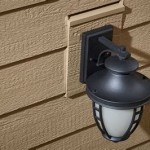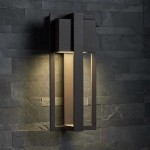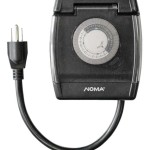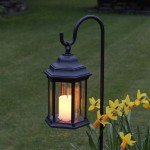12 Volt Outdoor Lighting: AC or DC
Understanding the fundamental differences between AC (alternating current) and DC (direct current) is essential when choosing 12-volt outdoor lighting systems. Each type has distinct characteristics that affect the performance, safety, and application suitability.
This article delves into the essential aspects of 12-volt outdoor lighting, focusing on the critical distinctions between AC and DC systems. By gaining a clear understanding of these factors, you can make an informed decision that aligns with your specific lighting needs.
Voltage and Current
Voltage: Both AC and DC systems operate on 12 volts, providing a low voltage for safe outdoor use. This low voltage minimizes the risk of electric shock and reduces the potential for electrical fires or injuries.
Current: AC and DC systems differ in their current flow. AC systems have a constantly alternating current, while DC systems have a unidirectional current flow. This difference affects the type of components used in the lighting system.
Power Supply
AC Systems: AC systems typically require a transformer to convert the standard AC household voltage to 12 volts. The transformer is connected to a power source, such as an electrical outlet or a dedicated circuit.
DC Systems: DC systems use a power supply or battery to provide a direct current at 12 volts. Solar-powered DC systems are also available, utilizing photovoltaic panels to generate electricity.
Reliability and Maintenance
AC Systems: AC systems are generally more reliable than DC systems, particularly during power outages. They do not rely on batteries, so they continue to operate as long as there is power from the transformer.
DC Systems: DC systems may experience voltage drops due to battery discharge or solar panel inefficiency during periods of low sunlight. Regular battery maintenance or solar panel cleaning is necessary to ensure optimal performance.
Safety
AC Systems: AC systems carry the risk of electric shock due to the alternating current. Proper installation and wiring are crucial to minimize safety hazards.
DC Systems: DC systems are inherently safer, as the current flows in one direction and does not pose the same risk of electric shock.
Application Suitability
AC Systems: AC systems are suitable for larger outdoor areas that require continuous lighting, such as commercial properties or large landscapes.
DC Systems: DC systems are ideal for smaller outdoor areas or where power availability is limited, such as remote locations or off-grid applications.
Conclusion
Choosing between AC or DC 12-volt outdoor lighting systems depends on the specific requirements of your project. AC systems offer reliability and continuous operation, while DC systems provide safety and suitability for limited power applications. By understanding the essential aspects outlined above, you can make an informed decision that meets your performance, safety, and aesthetic needs.

Top 10 S For 12 Volt Dc Lighting 12vmonster

12 Pack Of 12v Pathway Lighting Driveway Lights Kings Outdoor

Led Lights 12volts Ac Specifically For Landscape Lighting Systems

12 Pack Of 12v Pathway Lighting Driveway Lights Kings Outdoor

Led Lights 12volts Ac Specifically For Landscape Lighting Systems

12 Pack Of 12v Pathway Lighting Driveway Lights Kings Outdoor

Sunvie 24 Pack Low Voltage Landscape Lights Led 12w Lighting With Connectors Ac Dc 12v 24v Outdoor Spotlight Ip65 Waterproof Tree Flag Warm White Spotlights For Yard Garden Pathway Com

Leonlite 12 Pack Led Landscape Pathway Lighting 3w Ac Dc 12v 24v Low Voltage Path Lights 127lm Waterproof Aluminum 3000k Warm White Etl Listed For Walkway Yard Patio Com

Led Lights 12volts Ac Specifically For Landscape Lighting Systems

Easyswitch Wireless 12volt Ac Dc On Off Receiver
Related Posts







